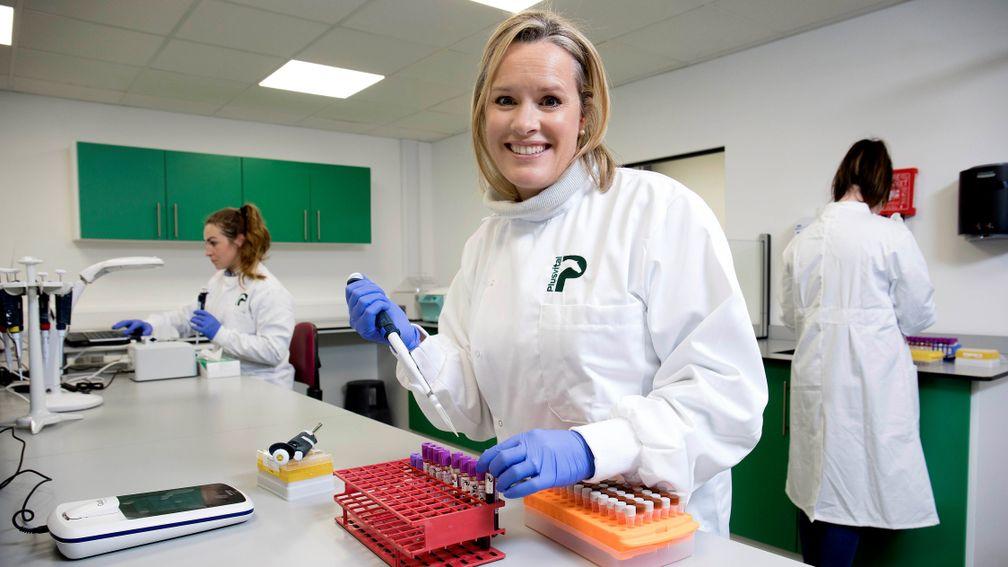Author of recent study says 'speed gene' testing can maximise earning potential
Emmeline Hill has expanded on the application of the DNA analysis

Emmeline Hill, the lead author of a recent study on 'speed gene' testing, claims the DNA analysis can be used by owners and trainers to maximise the earnings potential of their racehorses.
The study, the first of its kind and reported this week in the Veterinary Ireland Journal, matched the speed gene test results of more than 1,700 thoroughbred racehorses in Britain and Ireland to their race records.
The speed gene was discovered by Emmeline Hill, the lead author of the study who is UCD associate professor of equine science and chief science officer at Irish equine science company Plusvital.
The speed gene test enables a prediction of a horse’s optimal race distance by examining its DNA. Of the three possible test results, C:C horses are more suited to shorter races, C:T horses to middle distance races and T:T horses to longer distance races.
Hill said the latest study established a clear relationship between speed gene type and a horse's career earnings by distance.
"This research shows that racehorses over-performed in their optimum distance ranges and under-performed in races for which they were not genetically suited," said Hill.
"Furthermore, the performance among all speed gene types consistently deteriorated as the race distance diverged from the predicted optimal distance.
"A random sampling of horses at each distance would be expected to win the equivalent percentage of available prize-money. But the reality is C:C horses disproportionately outperformed in terms of prize-money in races under one mile, C:T horses outperformed in nine to 15 furlong races, while T:T horses excelled in longer distance races.
"Some trainers may be missing a trick by competing horses over unsuitable distances. Many still rely on pedigree, which is not an accurate indicator, as middle distance horses can produce both sprinters and stayers. That is the nature of how genetic inheritance can work."
Jonathan O'Grady, principal of O'Grady Advisors, who cross-referenced speed gene test results with recent racing form, described the results as remarkable.
"One could argue that the industry has long known through traditional methods that horses have an optimal trip, subject to ground conditions, age and other factors," said O'Grady.
"What this data highlights is that there remains gross inefficiencies in distance selection."
If you enjoyed this, you should also read:
New study shows 'speed gene' is main determinant of optimum race distance
Published on inNews
Last updated
- Telescope, sire of Supreme Novices' hero Slade Steel, relocates to Foxwood Farm
- Royal Ascot winner Arizona on the move as Coolmore sire joins the exodus to Turkey
- Something different for Burrows as Group 1-winning trainer consigns at the Tattersalls Cheltenham December Sale
- Breeding right to Blue Point sells for €430,000 on Darley winning bid platform
- Classic hero Metropolitan set for strong home support with Etreham busy at the sales
- Telescope, sire of Supreme Novices' hero Slade Steel, relocates to Foxwood Farm
- Royal Ascot winner Arizona on the move as Coolmore sire joins the exodus to Turkey
- Something different for Burrows as Group 1-winning trainer consigns at the Tattersalls Cheltenham December Sale
- Breeding right to Blue Point sells for €430,000 on Darley winning bid platform
- Classic hero Metropolitan set for strong home support with Etreham busy at the sales